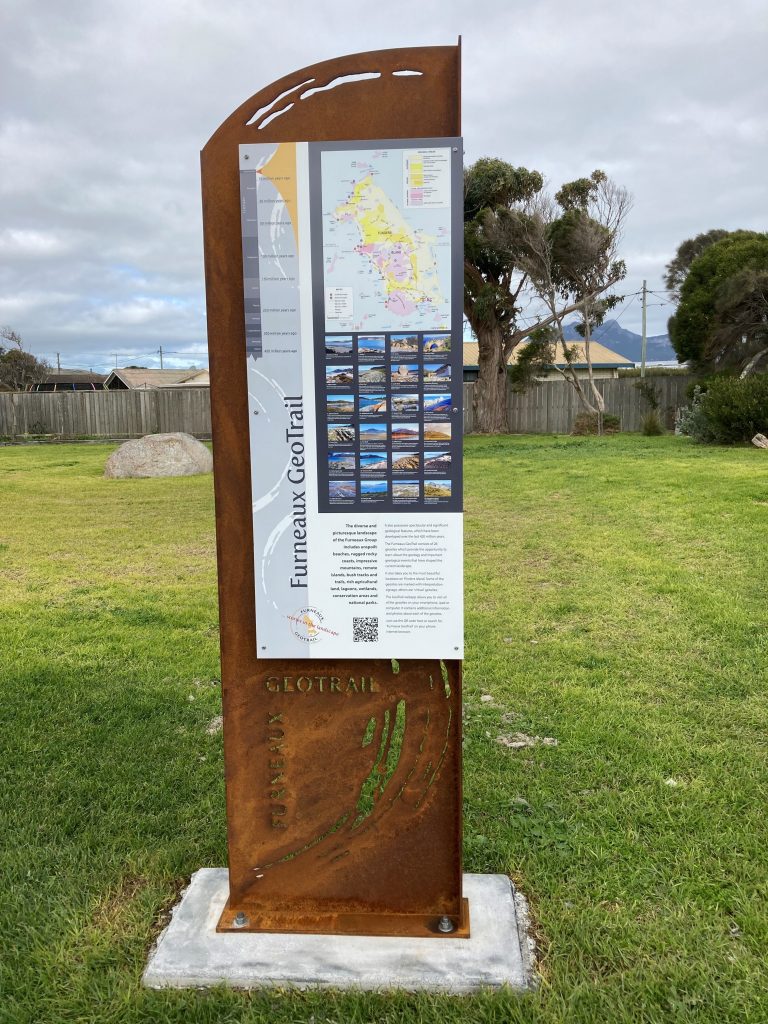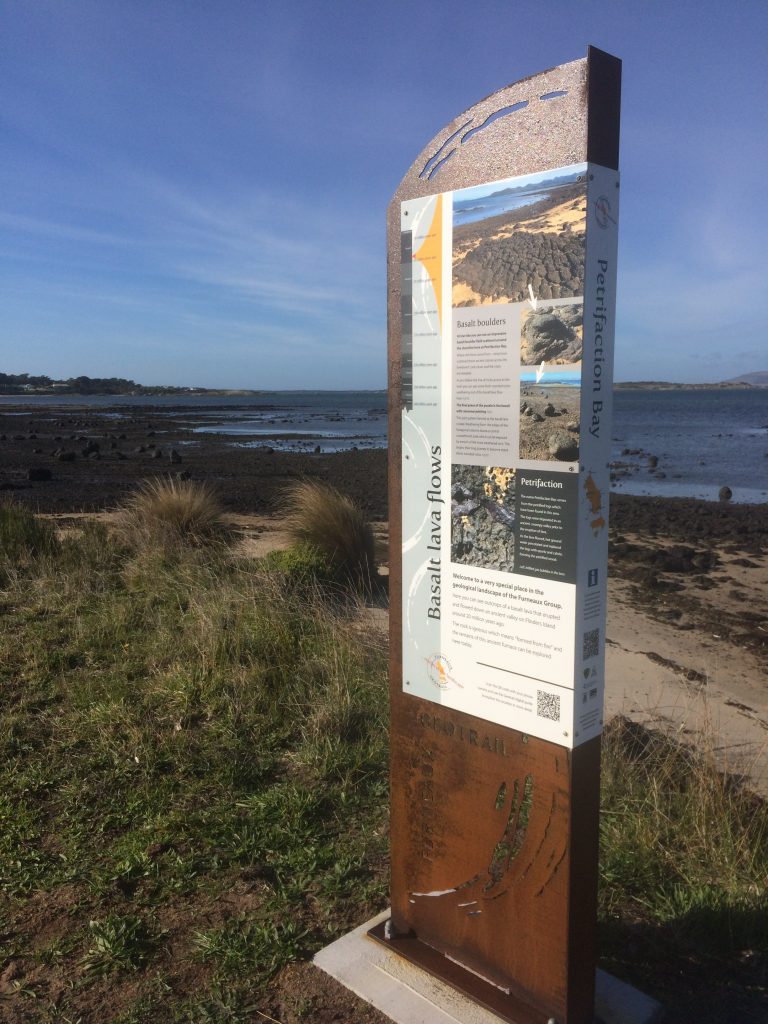Foundation for Rural & Regional Renewal (FRRR)
Huon Valley council acknowledges Traditional Custodians of the South East Nation, the Melukerdee people of the Huon River and the Lyluequonny people of the Far South.
Following a number of suicides in the Huon Valley in southwest Tasmania, the community indicated an interest in learning more about mental health and how to best support a family member, friend or colleague who may be struggling with their mental health.

With the help of a $9,255 grant through the In a Good Place program, supported by CCI Giving, the Mental Health Community Response project was initiated. Its goal was to build capacity in the Huon Valley to respond to and prevent suicide and promote mental health through the delivery of mental health first aid training to community members and groups. By providing the tools, community members could better understand and support members of the local community who may be self-harming or suicidal.
The Huon Valley Council took on a project coordination role, working closely with the Rural Alive and Well program, to reduce the stigma of suicide by promoting events widely across the community, encouraging conversations about mental health. They also ran three 12-hour Mental Health First Aid programs across some of the smaller communities in the Huon Valley, as well as delivering two self-injury focused workshops to community members struggling to support family members who self-harm.
The Huon Valley Council’s contribution was significant, as participants appreciated being able to complete the training at an affordable cost and within their own local community. COVID posed several challenges, with the delivery of training delayed, as it was agreed that face-to-face sessions were important, given the nature of the training.
Communities and individuals in the Huon Valley are now better equipped to support each other, their community, family members and colleagues dealing with serious mental health issues such as self-harm or suicidal ideation. Community networks were built and reinforced by the project. At the completion of the project, participants had the confidence and resilience to share stories and have conversations in a secure and inclusive environment, to further reduce barriers associated with discussing mental health and suicide.
For more inspiring stories like this, head to our FY 2021/22 Annual Review.
The Furneaux Historical Research Association is located in Whitemark on Flinders Island in Tasmania. Founded in 1964, they’re a volunteer organisation responsible for the Furneaux Museum and the conservation of artefacts pertaining to the natural and cultural heritage of the Furneaux region.
The museum plays a significant role in the vitality of the small and remote isolated community, attracting more than 2,000 visitors each year. It’s also a popular gathering place for the community for exhibition openings and special events.
Thanks to the help of an FRRR grant of $24,924, funded by a private donor, through the Strengthening Rural Communities program, the Furneaux Historical Research Association was able to complete the second stage of the Furneaux GeoTrail project.
The Furneaux Group consists of more than 50 islands in Bass Strait, just north of Tasmania. Their rugged and picturesque landscapes contain impressive geological features developed more than 600 million years ago. Many visitors and locals marvel at the vistas in the remote region but before the GeoTrail project, very few people were aware of just how special the geology is.
The GeoTrail project is all about linking the people who live in and visit the Furneaux region to the landscape, educating them and providing them with information in an easy and accessible way.
Stage one of the project was rolled out in 2019 and consists of a self-drive experience made up of 10 interpretive signs in areas of geological significance, easily reached by road. The innovative trail includes a mobile app and is the only one of its kind in Australia.
Stage two of the project saw the extension of the GeoTrail out into areas of geological significance accessible by walking, biking, 4WD, sailing or kayaking. These more remote areas contain examples of unusual and striking rock formations, telling the story of how the islands originated and evolved.
The completed Furneaux GeoTrail offers a world class user experience across the island group that attracts new people to the area, engages those who use it directly, and allows local community and business entrepreneurs to use their creative energies and leverage the GeoTrail to seek out future opportunities.
“We are very proud of the fact that the GeoTrail is bringing our local community and those who visit Flinders Island closer to the geology and the environment around them. It’s so rewarding to hear people talking about rocks! We are also very proud of the huge amount of work done by our volunteers in completing the project.”
Dr Dale Williams, Project Manager
For more inspiring stories like this, head to our FY 2021/22 Annual Review.
Students Against Racism (SAR) is a youth organisation based in Hobart, Tasmania. They believe that ‘in diversity lies strength’ and they seek to build a stronger more welcoming and supportive community by sharing stories and addressing misconceptions.
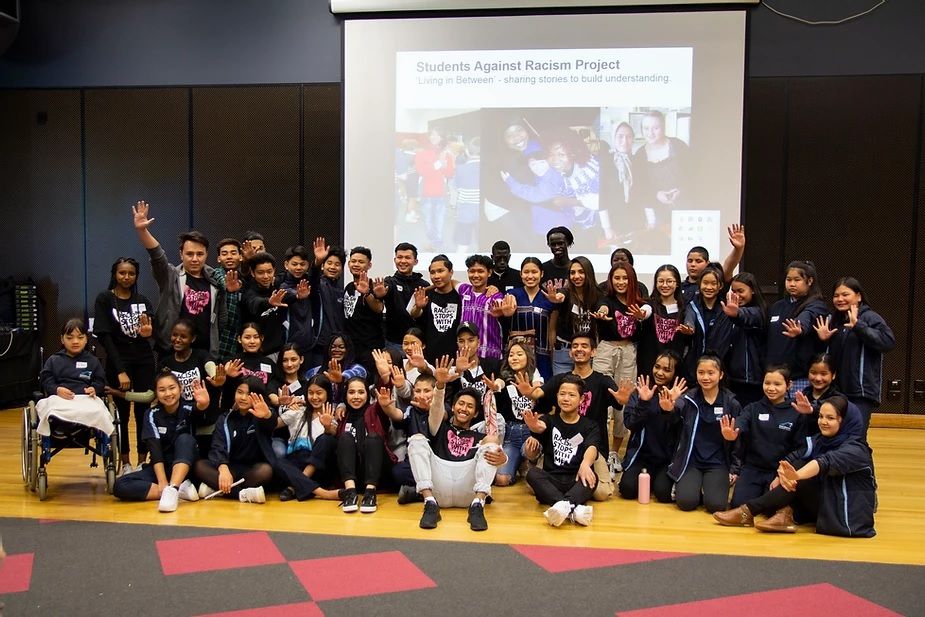
It was formed in 2008 by multicultural youth with lived experience in just how damaging direct acts of racism from their community can be. Recognising that ignorance was a big part of these acts, they sought to change the way their community saw people from different cultures through the path of education.
For over a decade SAR have developed and delivered integral and multi award-winning learning tools that have since been incorporated into various organisations – including schools and community groups, the Tasmanian police recruit training program and a number of TasTAFE courses. A part of these programs involves teaching participants about the issues and challenges facing multicultural youth who are new to the Tasmanian community.
As the proud recipients of a $7400 grant from FRRR’s HEYWIRE program, supported by the Sally Foundation, SAR attended the 2019 HEYWIRE Conference and made some long-lasting and vital connections that have since flourished into a greatly beneficial foundation for interstate learning.
The funding allowed 18 SAR representatives from various cultural backgrounds to travel from Hobart to Bendigo and present their flagship educational anti-racism program ‘Living in Between’ to 110 local youth at Eaglehawk Secondary College in the Bendigo region. The workshop involved presentations, small group work, activities and training, and allowed a safe environment to ask questions in order to foster understanding and compassion for those with multicultural backgrounds.
“The program gives the students the platform to explain why they left their homelands, the journey that brought them to Australia, and their lives now.”
Seeing the deep-seated impact that the SAR representatives could make via their anti-racism program, the students and youth from the Bendigo region indicated that were inspired to hold their own similar workshop and have since done so with great effect.
Through delivering this invaluable program, the youth of SAR have significantly gained self-confidence, increased teamwork and support, and have fostered deeper connections not just within their group but with the greater community. Helen Hortle who has been integral in the coordination of the educational adventure is pleased as punch with the outcome.
“It has been a fantastic experience for young members of SAR – one that wouldn’t have been possible without FRRR funding and support. Thank you!”
It’s hard not to smile when entering George Town Neighbourhood House. The community centre is a vibrant place, buzzing with people working to fight structural disadvantages in the area. With a couple of full-time staff and around a dozen loyal volunteers, this Neighbourhood House exists to create a safer and more inclusive and resilient community by supporting disadvantaged people and families.
But maintaining their high level of engagement and attracting new visitors was a challenge for their small team. They needed an extra pair of hands, someone who could help them reach the right people and promote the programs throughout the community. They submitted a brilliant application to the Strengthening Rural Communities program and, thanks to the Sidney Myer Fund, received $10,000 in grants to help cover the wages for their new communications officer.
But then came the next challenge – COVID-19. Suddenly, many of the community-engagement activities they had planned for the new staff member were impossible, or even illegal, to execute. This could have thrown a real spanner in the works for George Town Neighbourhood House… but nay! Instead of crumbling under the new restrictions, they found ways to adapt – and even thrive – in spite of them.
“We had to change how we interacted with the community from the end of March this year … We had to cease all face-to-face contact,” a staff member said. And it worked! They connected with residents online, engaged in collaborations with other organisations and even scored some airtime on the local radio station.
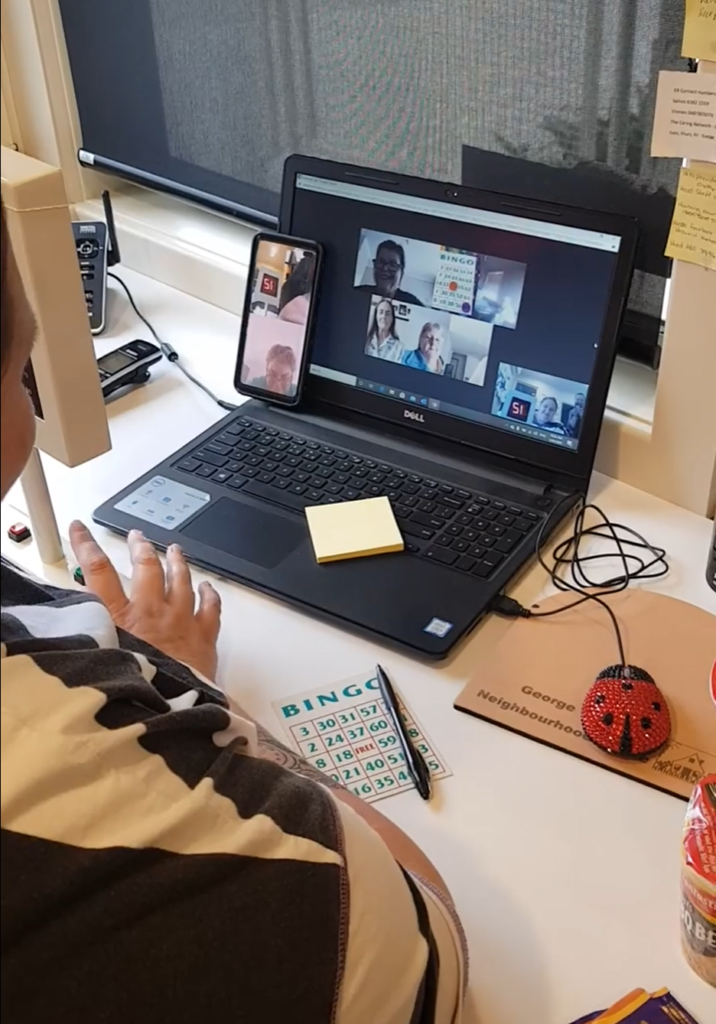
The highlight, the team agreed, was their Online Family Baking project. With Port Dalrymple School donating a big batch of ingredients, the Neighbourhood House could provide a baking-kit for 20 families in the community, complete with video instructions on how to bake delicious chocolate crackles. “We had a very good response and,” they told us. Following the success of this first bake-off, the Neighbourhood House were able to offer a second round of baking for the families who missed out – this time for Anzac biscuits.
In the end, this little community centre managed to positively benefit some 1,500 people with their grant, including the 40 families who participated in the baking project.
“We are very proud with how we were able to adapt, and still engage and extend to our community, in-spite of all the current COVID-19 issues,” a support worker said.
The Circular Head Community has gone through some difficult times recently, with the downsizing and closing of some major employers following floods and bushfires in the area. A street art installation in the main street of Smithton brought the community respite from the empty shopfronts and buildings that were still in need of repair. The community wanted to find a way to encourage artistic expression, bring the community together and encourage visitors to their town, while building on the creative art that already existed. With the incredible talent they have locally, it made sense to put on a three-week celebration of visual, creative and performing arts in what became the ‘Art About Town’ festival. Circular Head Council hoped that the project would not only provide employment opportunities for local artists but would also help to improve community engagement and social cohesion and boost tourism and the local economy. Thanks to a $10,000 grant from FRRR’s ‘Strengthening Rural Communities’ grant program and funded by the Sidney Myer Fund, the community was able to do all that and more.
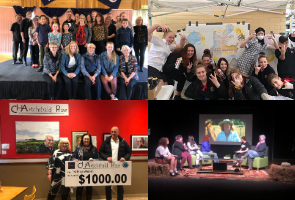
The Art About Town organisers spoke to local schools, old and young artists, musicians, teachers, students, members of the Circular Head Heritage Centre and Circular Head Aboriginal Corporation to provide a diverse and well-rounded program of events and activities.
As part of the celebration, four original artworks were commissioned from local professional artists. The last one was a whole community art installation, led by a local artist in collaboration with the local school and wider community. Locals could enter portraits into the ‘Chartchibald Prize’ exhibit, which was shown as a local café and had upward of 30 visitors per day. Members of the community were also given the opportunity to have their artworks and photographs displayed in a local shopfront makers space and in a gallery space, with a youth and open age category with prizes available for entries. There was also an arts trail for locals and visitors to enjoy.
The Dolphin Sands Ratepayers Association is a member of Landcare Tasmania, representing the residents and ratepayers of the fragile sand spit bordered by Moulting Lagoon to the north and Nine Mile Beach to the south. Their aim is to help residents be bushfire-ready by removing some of the highly flammable introduced species and replacing with low-flammability natives.
In April this year, a bushfire destroyed 128 hectares of vegetation in the Dolphin Sands area, leaving the fragile dune system vulnerable to further damage. The community is in a drought declared area, and with the ongoing dry conditions, members of the Association wanted vegetation cleared and mulched well before the next fire season.
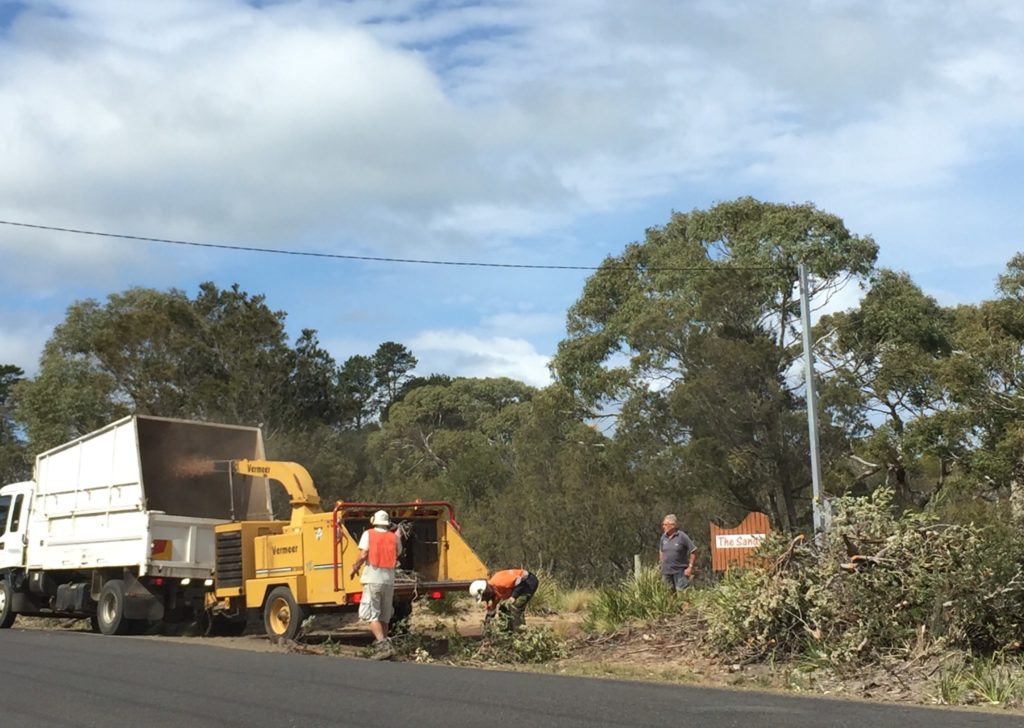
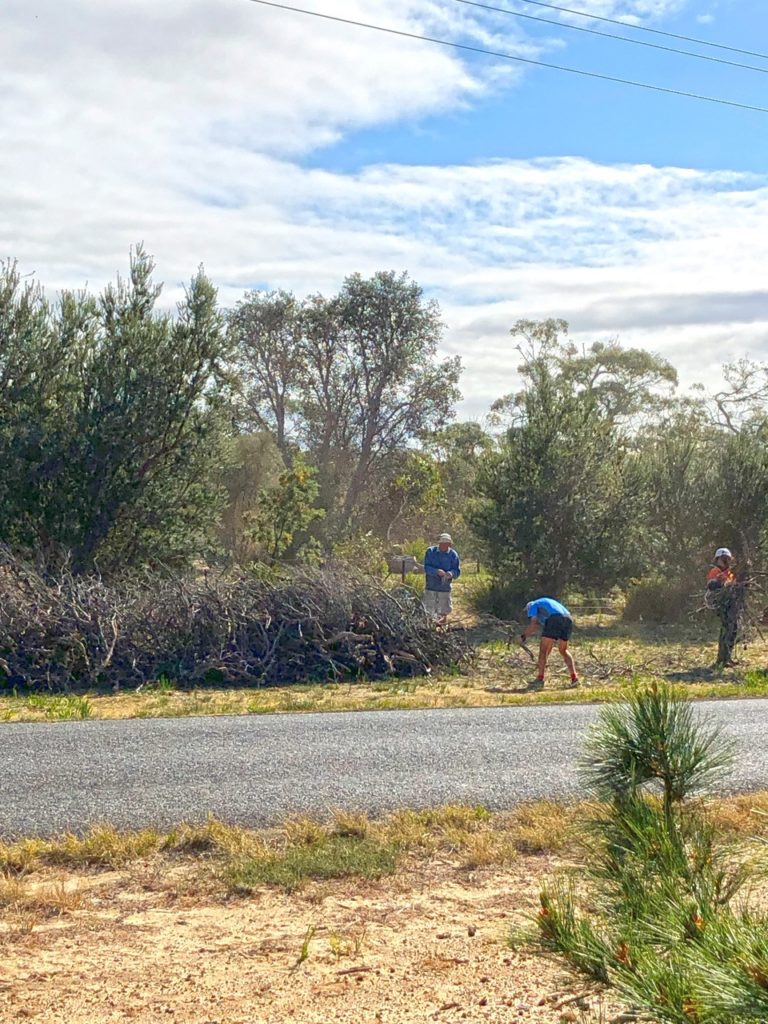
Given several of the recent fires in the area, including the April fire, were hazard reduction burns that ‘escaped’, residents were seeking viable alternative to burning green waste, thereby mitigating the risk of burns ‘escaping’.
They worked with the local council and emergency services groups to coordinate a series of working bees throughout Winter to reduce the fuel-load in the 25m ‘defendable zone’ around dwellings and beside driveways.
The Association received a $9,900 Tackling Tough Times Together grant, funded by Westpac Group, to pay for a commercial mulcher and its crew to work through the stacks of vegetation removed during the working bees, and, once mulched, transported it to areas recently affected by fire.
In total 15 truck loads of mulch (about 150 tonnes) were removed from 56 properties, which are now better prepared for the coming bushfire season.

